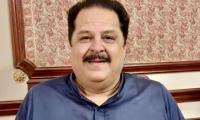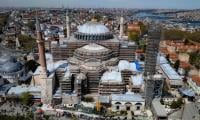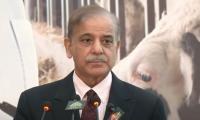said.
National Students Federation Pakistan’s central organiser Khurram Ali said, “The State has to stop aiding sectarian outfits and should seal their offices. It has to change its tactics of using these outfits in Balochistan, Sindh and as well as Kashmir.”
He was of the opinion that people would continue to suffer till all support to the Haqqani network was rescinded. “The state needs to stop differentiating between the Good and the Bad Taliban; not by mere words but by actions too.”
Pakistan Institute of Labour Education and Research representative Aabida Ali said it was the state’s responsibility to protect its citizens but banned religious outfits publicly held rallies outside the Supreme Court and chanted slogans against the Shia community while the State authorities looked on. “Where is the state’s writ?” she asked.
Lamenting the Sindh government for arresting peaceful civil society members protesting against providing the ASWJ chief security protocol right after agreeing to withdraw it, and them permitting the organisation to stage a rally after acceding to the protestors’ demands to seal their offices, she said, “It was clear that the state’s allegiance certainly did not lie with its ordinary citizens.”
“There is no debating the fact that these banned outfits are targeting Shias with impunity. But we have gathered here as the voice of all those who became victims of terrorism,” said Shahryar Naqvi, one of the protestors. Sceptical of the differing point of views, another protestor Asna Qureshi while emphasising on the importance of a civil society movement said, “It had to be now or else nobody would ever speak for more than the 50,000 innocent victims of war.”
Ban applies on Sharea Faisal, II Chundrigar road; will remain in effect from April 15 to June 14, 2025
Representational image show a rescue worker waves to make way for an ambulance. — Reuters/FileTwo people, including...
Sindh Minister for Transport PPP Sharjeel Inam Memon addresses media persons during a press conference, at Bilawal...
This image shows the canal in Pakistan. — APP/FileThe Sindh government on Tuesday strongly protested to Irsa over...
CM Sindh Murad Ali Shah charing a meeting of the cabinet on April 15, 2025.— Facebook@SindhCMHouseThe Sindh...
Karachi University's Silver Jubilee Gate. — The News/FileHighly credible sources have revealed to The News that...







